Meet the Exec: APAI’s Kirsten Pauley
BY AsphaltPro Staff

The Asphalt Pavement Association of Indiana (APAI), Indianapolis, was first formed in 1959. Now, the association includes 19 producer members, representing roughly 95 percent of the asphalt tonnage let to contract in the state, as well as five laydown members, seven binder suppliers, and approximately 80 associate members.
On Jan. 1, 2019, Kirsten Pauley took over as APAI’s executive director, a position previously held by Bill Knopf. Pauley previously served as the association’s technical director for two years.
AsphaltPro spent time getting to know Pauley and learning how APAI promotes the asphalt industry in the state of Indiana.
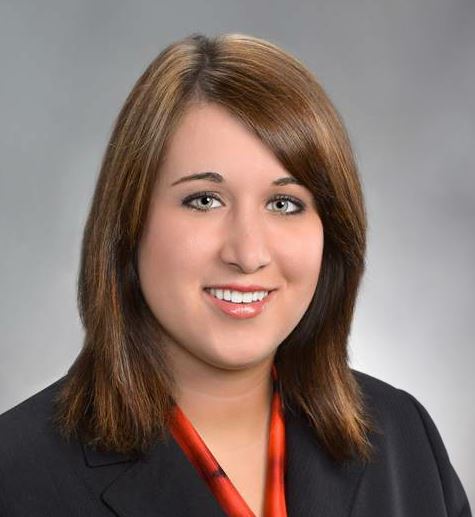
Pauley has more than 10 years of experience in the asphalt industry.
How long have you been in the asphalt industry?
I’ve been in the asphalt industry for 10.5 years, since the summer of 2008 when I got into the industry as a summer intern following my first year of college.
Do you have a degree related to the industry?
Yes, I have a Bachelor of Science in Civil Engineering 2011 from Purdue University.
Would you share a story from your college days that asphalt professionals can relate to?
During my third internship, I had the opportunity to be the superintendent on my own Walmart parking lot resurface project. I set up the schedule, calculated production and trucking, managed the milling sub, coordinated construction phasing to maintain store access, and was the point of contact for the owner. At the end of the summer, I was amazed at everything I had learned and was so proud of being an integral part of the successful project.
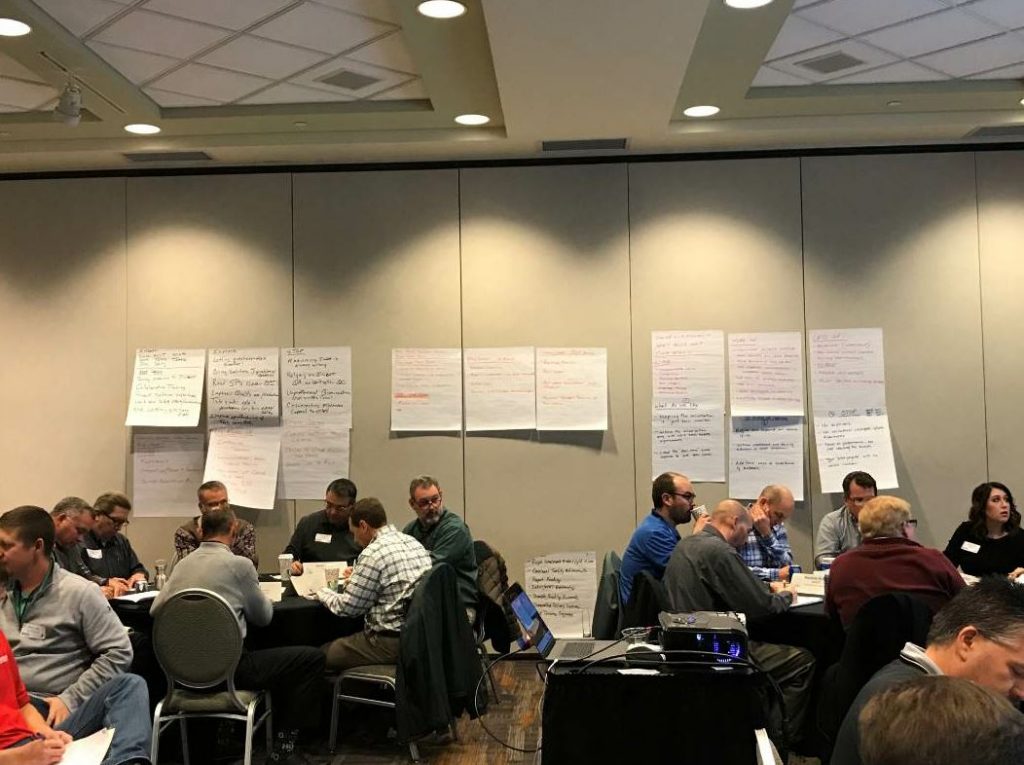
APAI’s board of directors and INDOT meet for a partnering session.
What are the top two or three ways APAI has increased association membership in the past, and what do you have planned for the future?
One specific strategy that our retiring Executive Director, Bill Knopf, initiated was offering an introductory membership at half-price and including a complimentary booth at the APAI Winter Conference for three years. That strategy successfully recruited 10 engineering consulting firms to join as associate members of APAI. Many firms retained their membership even after these promotions expired, and we have seen an increase in participation from engineers at our events because of this outreach.
Looking ahead, I think one approach that could help recruit more APAI members would be to increase the number of regional events around the state, outside of Indianapolis. Additionally, this would allow employees of current member companies, who may not always be able to make the drive to Indianapolis, to participate in more events.
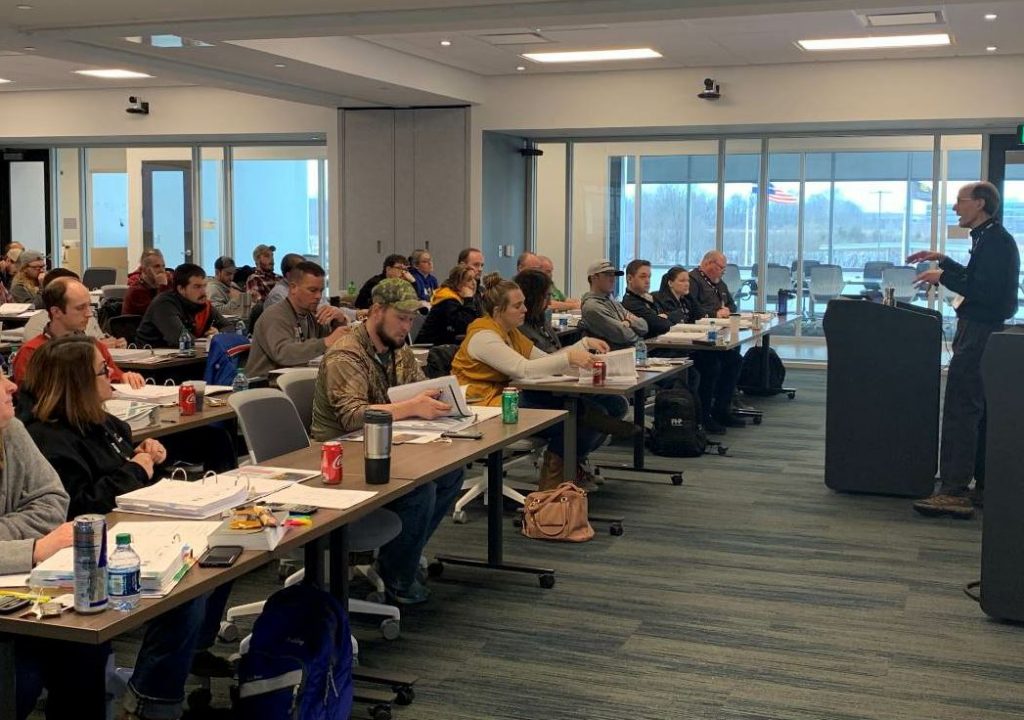
Students attend Indiana Certified Asphalt Technician (ICAT) program, a certification program put on jointly by APAI and INDOT.
In what month do you hold your annual meeting?
We have our annual meeting every December. The APAI Winter Conference is one of the largest in the nation with 650 attendees, half of whom are contractors, one-quarter are agency, and one-quarter are vendors, consultants, educators, or students.
We also have a trade show with approximately 45 booths. We have concurrently-running educational sessions: an asphalt paving and laydown track, a production and quality control track, a business management track, and an agency track.
Our awards program also takes place during our trade show. It includes quality pavement awards (eight categories, all non-DOT work), safe worker awards (recipients are nominated by their companies for leadership of safe practices in the field), and APAI’s Hall of Fame (individuals are inducted for lifetime contributions to the asphalt industry).
Each year, we give out scholarships at the Winter Conference Awards Banquet to college students planning to pursue careers in the asphalt industry. The scholarship funds are raised throughout the year at our April sporting clays fundraiser, June golf outing, and raffled shotgun. In December 2018, we awarded a total of $52,000 to 23 students at five Indiana universities.
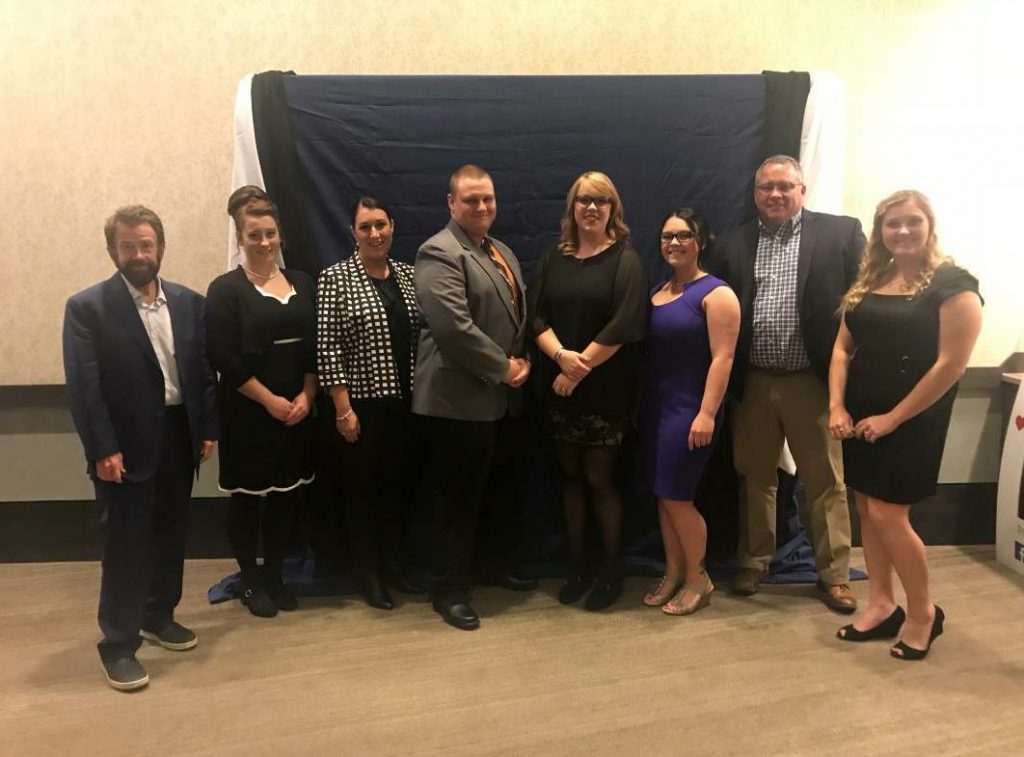
APAI Executive Director Kirsten Pauley, retired APAI Executive Director Bill Knopf, and APAI Past-President John Collett attend Indiana State University College of Technology 50th Anniversary Banquet with APAI scholarship recipients, many of which have upcoming internships with APAI member companies.
Do you have a staff that assists in preparing the annual meeting?
We outsource meeting planning to an event planning firm for our two largest events of the year, the December winter conference and July summer meeting. We’re in a transition period with the retirement of our previous executive director, and have recently added Jaymie Hunckler as our member services manager. Although my role will remain technical, Jaymie will be focused on marketing, meeting planning, workforce development and membership outreach.
Does your staff hold educational seminars or webinars for members separate from the annual meeting?
APAI hosts three to four workshops each year for our membership on topics such as new equipment technologies, what’s on the horizon for performance testing, marketing 101, etc. We plan to have a workshop in 2019 for the chairs and vice-chairs of our 10 APAI committees to learn how to effectively lead meetings and moderate panel discussions, which I believe will be informative and beneficial. We’ve not tried to host any webinars yet.
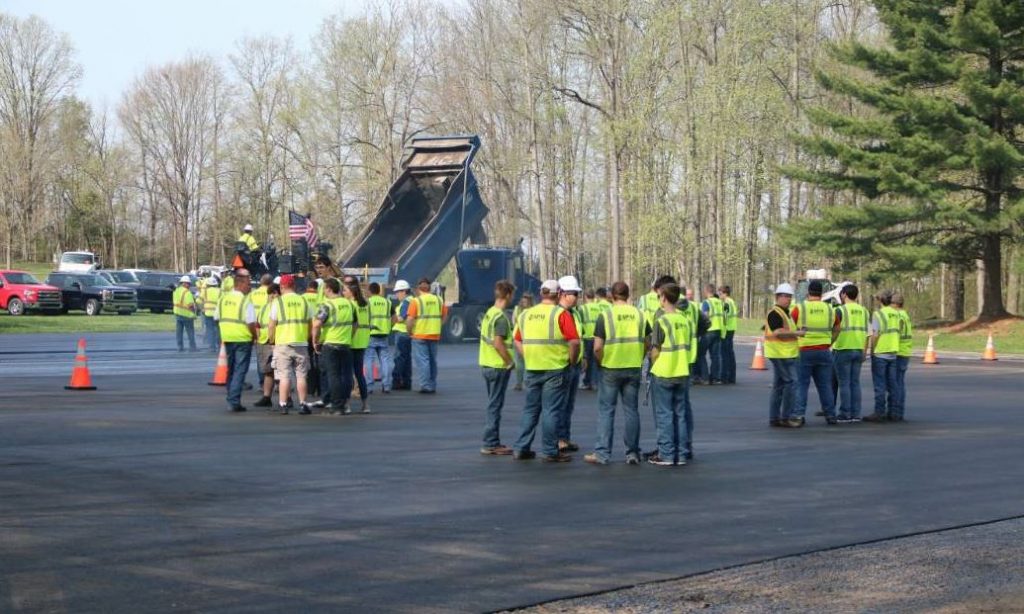
In May 2018, APAI held #Ag2Asphalt at the FFA Leadership Center in Trafalgar, Indiana. APAI producer members funded the paving of the new parking lot, and FFA brought in approximately 250 high school students to observe the paving operations and learn about career opportunities in our industry.
About how many member asphalt projects do you visit per year?
Each fall, I judge the APAI Quality Pavement Awards program, which involves driving around the state to examine approximately 40 entries. In the future, I’d like to get out to more active construction projects to stay abreast of any new paving technologies and connect with our membership’s field personnel.
Because of my background working for an asphalt general contractor for five years, I’m very comfortable at an asphalt plant and on the jobsite. The smell of asphalt triggers memories of the times I spent early on in my career around asphalt production at the plant and asphalt placement with the crews in the field.
About how many member asphalt plant tours do you assist/are you a part of per year?
Our members host plant tours around the state for students in civil engineering and construction management programs, and I try to attend several of these throughout the year to highlight our scholarship program and the career opportunities that our industry offers.
This year, we will be hosting a plant tour for consulting engineers who have on-calls with the DOT to do pavement design. As an engineer with both contracting and engineering consulting experience, I understand how valuable it is for designers to be on jobsites and around the asphalt production process as much as possible.
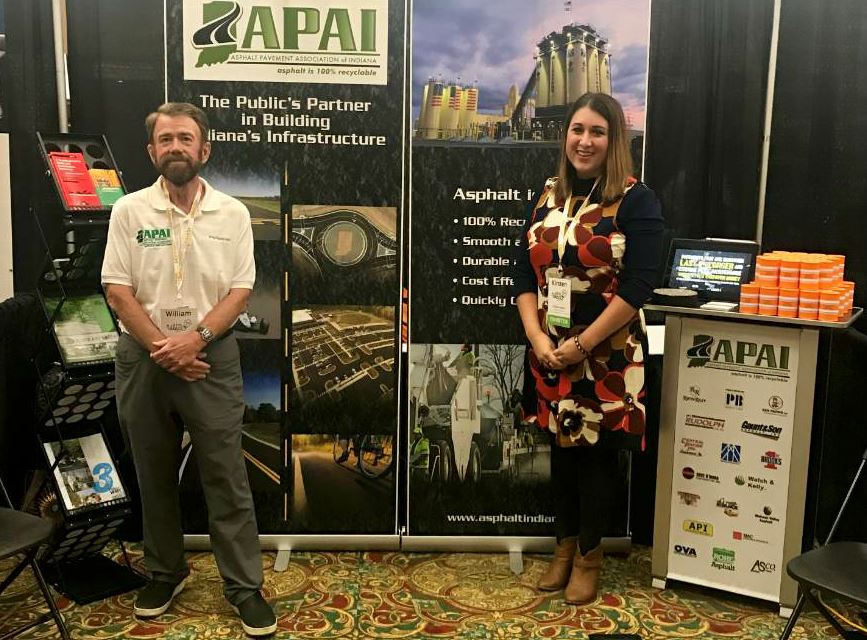
On Jan. 1, 2019, Pauley (right) took over as APAI’s executive director, a position previously held by Bill Knopf (left).
About how many state agency or DOT meetings do you attend per year?
APAI has two committees which meet regularly with INDOT. Our technical committee meets with INDOT a minimum of six times a year to vet proposed specification changes through industry. Subcommittees of this group were set up to create a more productive working group size and to meet on specific topics, such as performance testing, e-ticketing, testing turnaround times, etc. Our focus committee meets with INDOT approximately three times per year to discuss big picture potential changes to our industry. Both INDOT and the industry understand the value of cooperative partnership to build quality asphalt pavements for Indiana taxpayers.
On a scale of 1 to 5 (1 being none at all; 5 being very much), how much of a threat to your members’ marketshare is the concrete industry in your state?
5. INDOT uses Pavement ME exclusively for all roadway designs and frequently lets concrete/asphalt alternate bid projects. Using appropriate inputs and calibration is critical for the Pavement ME software, which is a topic we regularly discuss with INDOT. APAI advocates for a fair LCCA system and is committed to research and education to increase performance of all pavements.
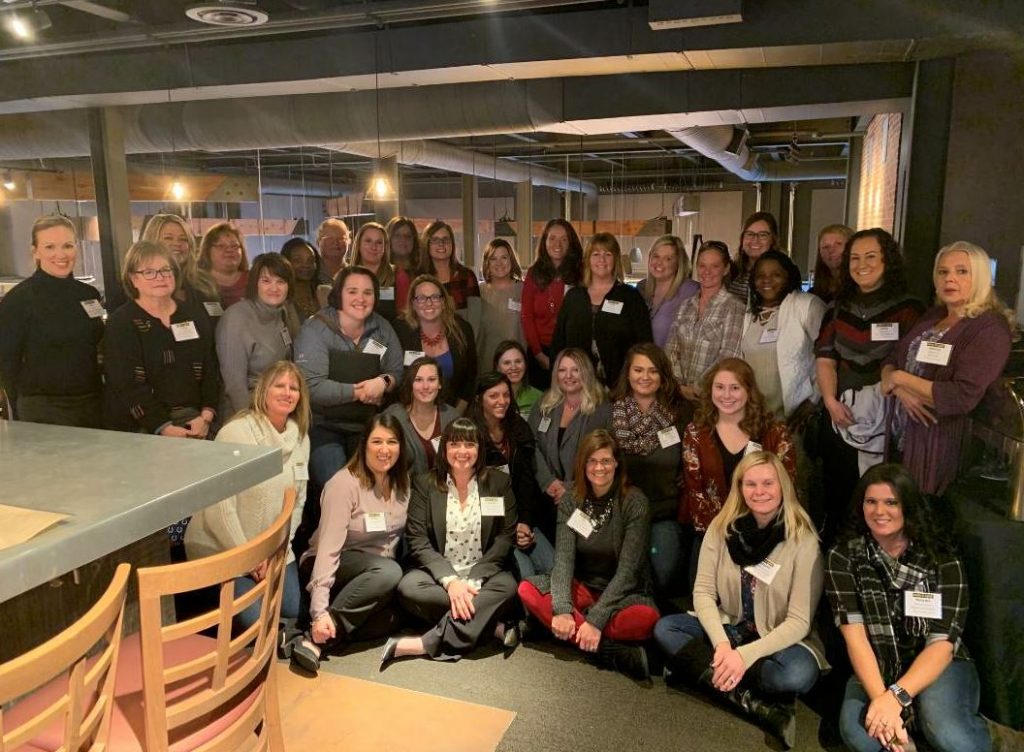
In the fall of 2019, a group of four APAI women planned the first Indiana Women of Asphalt event. The event brought together 40 women within the industry, including laborers, equipment operators, project managers, estimators, administrators, accountants and CEOs, to name a few.
On a scale of 1 to 5 (1 being none at all; 5 being very much), how much difficulty are your members having in finding qualified workers for their asphalt paving or production crews?
5. A recent survey of our membership predicts 10 percent of our workforce will retire within five years. These retirements, coupled with increased infrastructure funding for Indiana, make recruitment and retention of talent to our industry a priority for our association.
Could you give an example of a way your state APA assists members with workforce development?
APAI launched a partnership with Future Farmers of America (FFA) in 2017. In May 2018, APAI held #Ag2Asphalt at the FFA Leadership Center in Trafalgar, Indiana. APAI producer members funded the paving of the new parking lot, and FFA brought in approximately 250 high school students to observe the paving operations and learn about career opportunities in our industry. The FFA students are a great fit for the asphalt industry because of their work ethic, experience around heavy equipment, are typically from rural areas, and may be looking for alternative career options other than attending college. NAPA is also interested in growing this initiative, having participated in the national FFA convention in October 2018 and FFA Day at World of Asphalt in February 2019. At this time, approximately 14 other state asphalt associations have reached out to Indiana for information to connect with their local FFA chapter, so I anticipate this partnership will grow over the coming years.
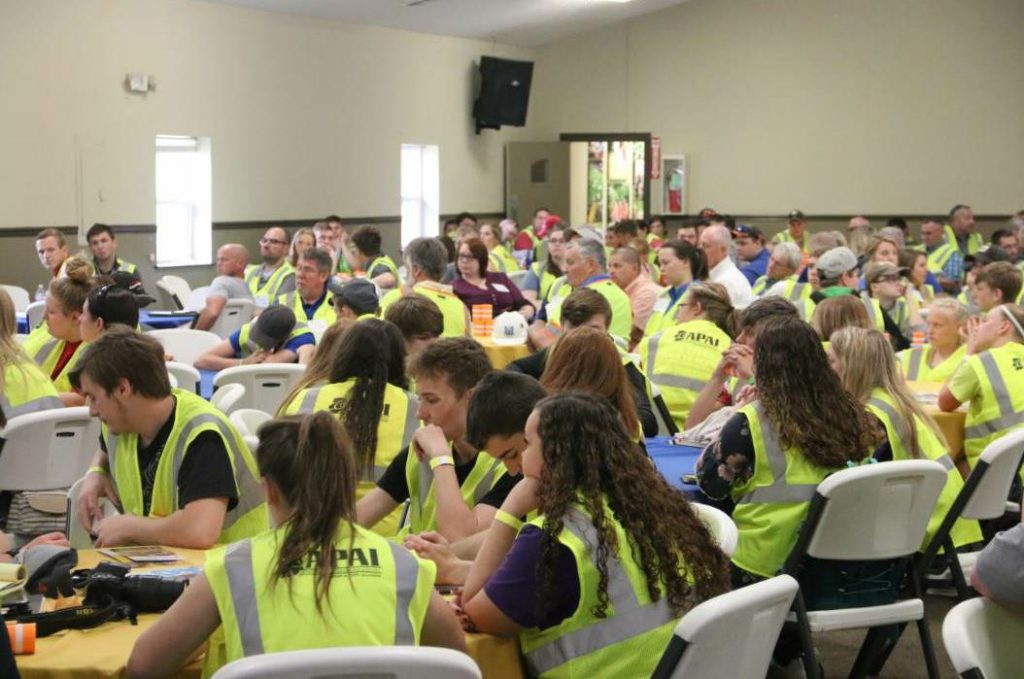
In May 2018, APAI held #Ag2Asphalt at the FFA Leadership Center in Trafalgar, Indiana. APAI producer members funded the paving of the new parking lot, and FFA brought in approximately 250 high school students to observe the paving operations and learn about career opportunities in our industry.
On a scale of 1 to 5 (1 being none at all; 5 being very much), how involved are your asphalt members in transportation issues such as funding and infrastructure improvements?
5. In 2017, all five highway construction associations in Indiana combined efforts to advocate for infrastructure funding. This led to Indiana legislatures passing a highway bill with a 10 cents per gallon gas tax increase. Available funds will ramp up over an eight-year period to an additional $1.2 billion per year by 2024. Approximately one-third of these funds are set aside to go to municipalities through a program called Community Crossings. Since the inception of the CC program, it has been neat to see how transformative this assistance can be to a small town in desperate need of repaired roadways and other infrastructure improvements.
Get to Know Kirsten Pauley
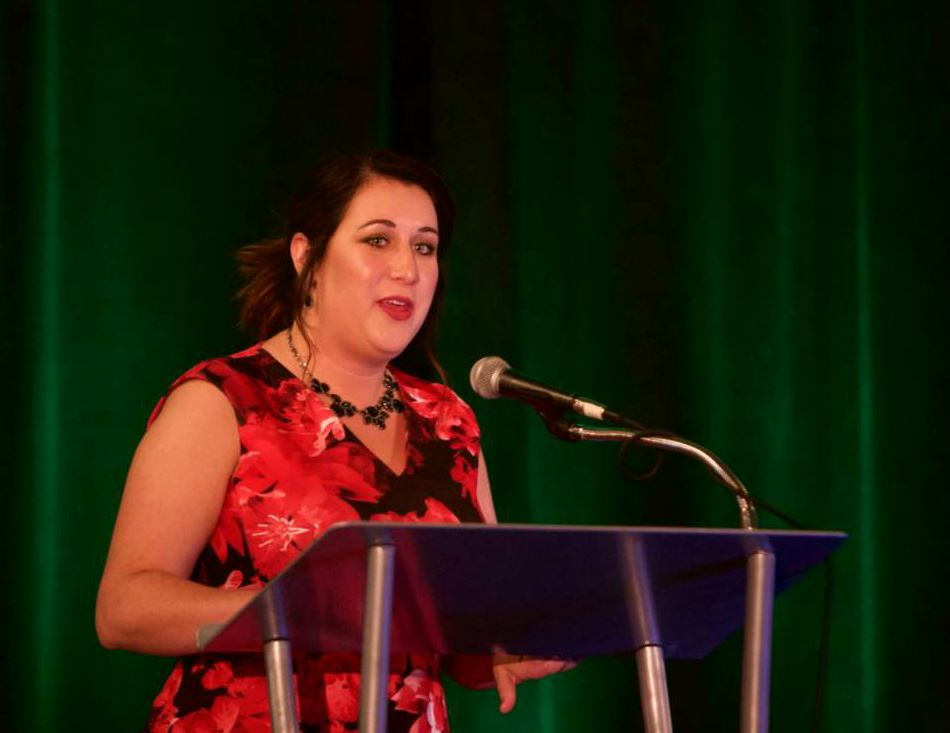 Why did you join the asphalt industry?
Why did you join the asphalt industry?
When I went to Purdue to study civil engineering, I had aspirations of being a building designer. As a freshman in 2008, finding an internship was difficult because of the economic downturn. My only opportunity for a civil engineering scholarship was with an asphalt general contractor (NAPA and APAI member), and I remember thinking that “construction surely isn’t that bad and I’ll try it for a summer.” Ha! I worked that summer in an asphalt lab at a plant running quality control tests. I enjoyed the atmosphere of being at the plant and outside, the people I worked alongside, and the variety of each day offering a new set of challenges. I was hooked! I returned to Purdue, changed my civil emphasis to construction, and have worked in and around the asphalt industry since then.
What I’m most proud of in my career is that I took risks and pursued my passion for asphalt, ignored those that told me that construction isn’t real engineering or that women don’t belong in this “rough and tough industry,” and made a name for myself without any family connections in the asphalt industry.
What do you see as the most important part of your job as an executive director of a SAPA?
I believe my most important role is to continually improve the asphalt industry’s relationship with INDOT. APAI brought in a facilitator for a partnering session between industry and agency last fall. He used the analogy that oftentimes we approach issues as two opposing sides of a scrimmage, but, if we would see ourselves as being on the same team, it’s much easier to score a touchdown, and both APAI and INDOT benefit.
What is the most challenging part of your job?
I think the greatest challenge working for an association is multitasking many events and prioritizing initiatives. Some of APAI’s efforts from the last two years include hosting lunch-and-learns for engineering consulting firms, exhibiting at several trade shows each year with our newly designed APAI booth, managing two INDOT certification programs, rebuilding our website with online registration/payment for events, working side-by-side with INDOT on the design of a interstate project with 20 asphalt test sections, organizing innovative events such as #Ag2Asphalt, and planning programming for INDOT/LPAs and FFA at World of Asphalt in Indianapolis.
Juggling the administration of these events/initiatives with a staff of two can be overwhelming. However, our board of directors and APAI committee members are actively engaged in the association and always willing to assist where needed. Without a doubt, the variety of what I get to be involved in keeps this job interesting and enjoyable.
What do you find most enjoyable about your job as an executive director of a SAPA?
More than anything, I enjoy the amazing people I get to work with each and every day who have been so helpful and supportive during my first two years at APAI. I could not imagine a more perfect job where I get to use my engineering degree and continue to learn more about the asphalt industry at a people-focused job that has tons of variety and allows me to live in Indianapolis, where I grew up and my friends and family are.
What has been the most rewarding experience for you during your time as the executive director?
Last fall, a group of four APAI women in Indiana planned the first Indiana Women of Asphalt event. We had 40 women from all roles in the industry, from union laborers and operators to project managers and estimators to office administrators, accountants and CEOs. We had overwhelming appreciation from all attendees for the opportunity to network with other women in the industry and share experiences. As a woman who went to work for the asphalt industry at the start of my career and did not know any other females in an operations role like I aspired to, this initiative is incredibly important to me. I hope to build on the success of our initial event and to eventually set up a mentor/mentee program for women in asphalt in Indiana.
